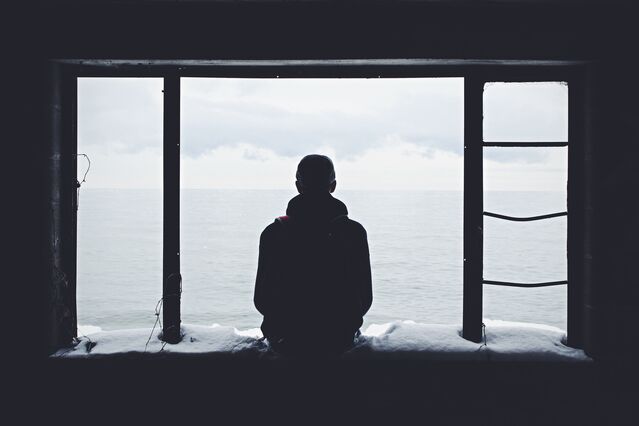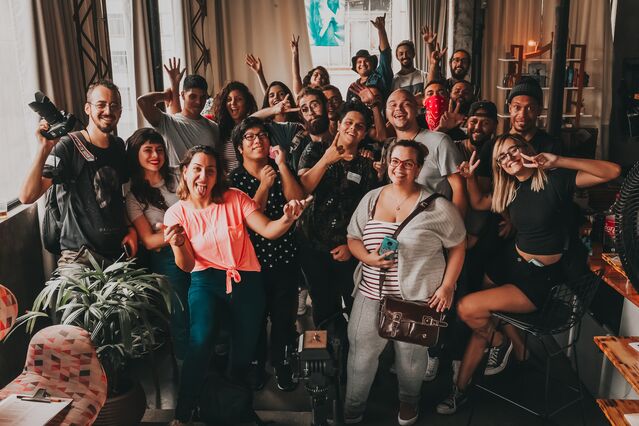Eating Disorders
Why Do We Judge Other People?
Hating others is at odds with loving ourselves. What compels us to do it?
Posted October 1, 2021 Reviewed by Ekua Hagan
Key points
- People judge others to avoid reckoning with potential feelings of inferiority and shame.
- Since judging others can never give a person what they really need, they feel like they have to keep doing it.
- One can choose not to perpetuate the cycle of judgment.

Judging other people has nothing to do with the people who you are judging.
For many people with disordered eating, making judgments about other peoples’ food choices and bodies is a part of the picture. This is often out of line with the individual’s real values, which are generally more about inclusivity, diversity, compassion, and relatedness—ideas that are fundamentally at odds with judgmentalism. So, why does this happen?
Many people who have not been privileged enough to receive unconditional love have an unconscious idea that there is only so much to go around. So much attractiveness, so much wealth, so much youth, so much beauty, so much achievement, and, ultimately, so much love. They have a belief in finiteness. When someone else has something, it seems like something that they are deprived of. The quantities are limited and there is no such thing as baking a bigger pie.
The pull is to see people in a rank-order, hierarchical fashion. When two people encounter one another, one is better and one is worse. You might use any metric—wealth, status, social ability—but the eating disorder will compel you to go for size, weight, and choices around food and exercise. If you aren’t the better one, watch out! You might be worse.
You Feel Like You Have to Keep Doing it
And so, judgmentalism is about safety. If you are the “better person” in a given scenario, you don’t have to worry that you might be the “worse” one. You don’t have to reckon with potential feelings of inferiority, shame, and generally not being good enough.

Because judgmentalism destroys relationships. If you are better than someone, you are apart from them. You are above them, not beside them—and so nobody is beside you.
And, of course, because real strength is not about sh*tting on other people. It’s about knowing who you are, what you value, and how you want to live that truth. It’s about knowing that you can afford to be generous because you are enough and there is enough to go around. Extending you some kindness does not diminish me; instead, it makes the world that I exist in a better place to be. We bake a bigger pie; we all win.
Because you probably also know how it feels to be judgmental. There is that quick sense of relief but then, on some level, an awareness that you are not in alignment with who you really want to be. You feel kind of dirty, emotionally safe for the moment but aware on some level that you are engaging in a cheap, dirty trick to bolster your sense of worth. But you might also not feel like you have any options, as if you can never own anything that wasn’t on some level stolen from someone else.
And you have to keep doing it. Because it isn’t what you really need, it isn’t true and deep respect for yourself, it can never be enough. You’ll have to judge another person, and another and another, to keep the charade going. You’ll have to find drug addicts, criminals, terrible mothers to keep your head above water with floaties instead of learning how to swim.
Plus, now you are living in a world rife with judgmentalism because you have invited that force into your life. You may even have difficulty keeping your judgments to other people and end up judging yourself just as harshly as you do others, ironic for an endeavor that was originally meant to salvage your self-esteem.

Extending Kindness
But maybe you can recognize that you do have choices. Whether you are judged or being judged, you can choose not to perpetuate the cycle. You can let go of needing to be better than other people and start holding onto being enough for yourself. You can see yourself as worthy of love and other people as worthy of love, and rest in the knowledge that there is enough love to go around. You can make space for your own vulnerabilities and others’ vulnerabilities, maybe including judgmentalism.
When we practice kindness for others, we also find more space to extend it to ourselves.


